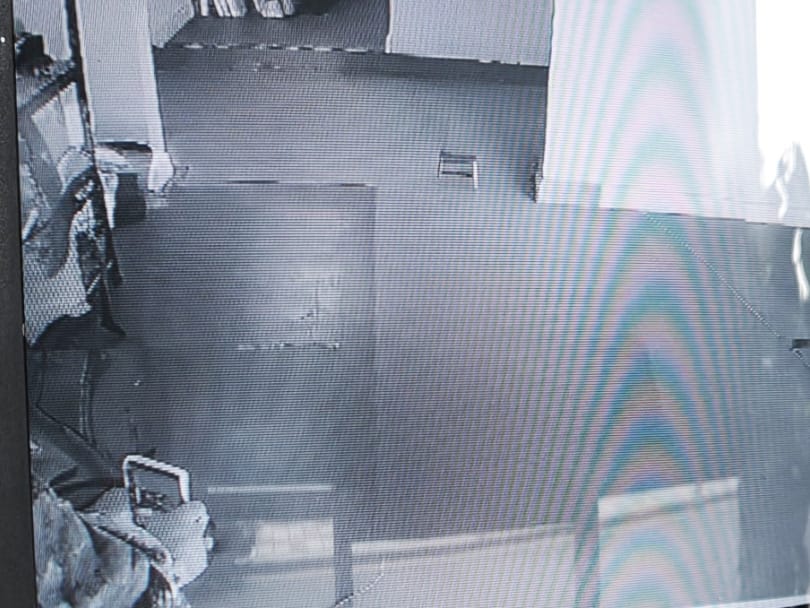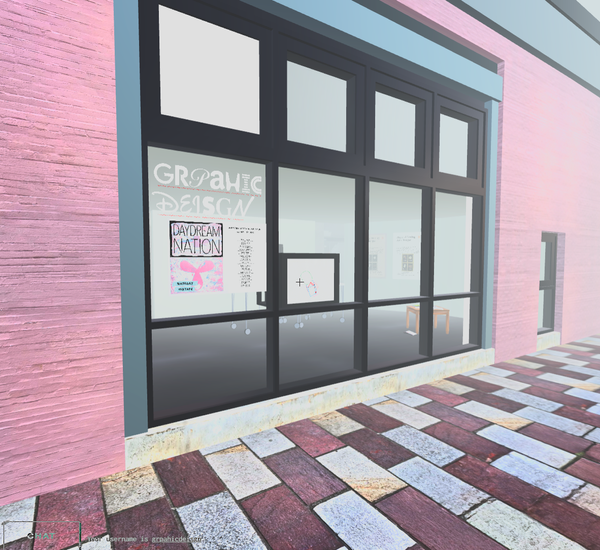email from Nathan: 32 (In Translucence)

Two emails from me in two weeks! This one will be delightfully relatively brief, I mainly wanted to let you know about a new interactive artwork I'm displaying in Glasgow this weekend, and some reading/watching/listening updates I missed out last time. Before I talk about the work, here are the details:
In Translucence is featured in AI Can’t Write Symphonies and Neither Can You, a programme of works and talks exploring the nature of creativity through the lens of AI and examining how it might change our perception of the arts in the future.
The Boardwalk, 105 Brunswick Street, Glasgow
27th June: 12:00 - 15:00
28th June: 09:00 - 16:00
Admission is free and ticketed

In Translucence
A couple of months ago I sent some notes about this idea of translucent technology I've been pursuing. If you missed it at the time you can read the below to catch up, but if you can't be bothered then here's a quick summary in the style of a chatbot:
- AI is more an aspirational marketing slogan than an actual scientific term these days. (my original reference here was Wesley Goatley but I like this piece from Sara Parker)
- When a brand like this declines then the actual technology doesn't cease to exist, it just recedes from our consciousness.
- When this happens, they tend to become translucent; like looking through a window we use them without acknowledging their presence.

I've been pulling at the thread which I mentioned in the final paragraph of the above:
There's another, more scintillating angle on this which I want to explore, which is the technology working to erase itself. When you use an AI tool unknowingly, and the mechanism that prevents this intervention from being noticeable is the AI tool itself concealing its existence.
In Translucence is a very literal illustration of this, featuring a camera pointed at a deconstructed computer connected to a large display. The screen's display shows the live video feed from the camera with one key alteration: in the machine's depiction of the world, the machine no longer exists and in its stead is empty space. Viewers can wander around the machine and experiment with their presence in the camera feed, sporadically revealing the flaws in its camouflage as it fails to hide itself, making apparent Betti Marenko's definition of a glitch as the machine caught in the act of revealing itself.
This work is a development of the techniques I was using last year for It is not what is in it but it is what it is in, but I'd really see it as a brutal refinement of that work. Previously I liberated the machine, encouraging it to add to or change the world it sees, and took the unpredictable results as the jumping off point for discussing all of the multitudinous implications of this. This is obviously confusing and unfocused, and I often tripped over myself discussing the concepts I felt it highlighted. By stripping all of this back and inverting the machine's function, I hope it can produce a work which is more lucid and useful.
Of course, this is prototypical and a work in progress, and I'll come back with images and videos after the weekend and as it develops I'll share info on the techniques I've used.
Reading/watching/listening
I watched 2004's I, Robot featuring Will Smith the other night. Obviously the title of the event this weekend (Will Smith’s character asks the robot Sonny “can a robot write a symphony? Can a robot take a canvas and turn it into a masterpiece?” to which Sonny replies “can you?”) gave me some hope that this widely-disregarded mid-2000s hollywood scifi might contain some poignant moments reflective of Asimov's stories which passed me by when I was 14. It doesn't.
Speaking of Will Smiths, I've been playing The Farmer Was Replaced after a recommendation from a different one. It's a nice way to learn some Python, but more importantly it's really good at pushing you to understand some general programming and computer science concepts, which I really believe are things most of us can only really learn through practical experience. It's a much better use of time than playing through Universal Paperclips for the 30 septendecillionth time, which I do only as self-sabotage.
Speaking of computer science concepts, I've been meaning to recommend the University of Helsinki's free Elements of AI course for a long time. As ever, the fucking nomenclatural disaster of the term AI really gets in the way here: to be clear, you're learning about the computational structure of machine learning, not about the most effective LinkedIn ChatGPT prompts or choosing the right ControlNet for your Stable Diffusion Hentai workflow.
Hari Kunzru's Doing Their Own Research in The New York Review (archived) charts a pathway through history to things you recognise (RFK vaccine scepticism, wellness influencers, evangelicalism, antisemitism) from things you might not (Conspirituality, New Weird Fusionism).
Gaby Hinscliffe in the Guardian has what I feel are some hard truths about activism and the future of the left. I think it's worth reading if you're ready to recognise that whatever we've done over the past decade really hasn't worked.
Skipped season 1 of The Rehearsal so I could catch up what everyone's saying about season 2 and it's great.
Watched the final season of Handmaid's Tale and it's fine, it's just one of those things you watch for the resolution of it. I feel like most games and TV shows slot in to my life like a fetch quest you need to tick off to grind some XP and this felt exactly like this by the end. That's not pejorative, I like grinding fetch quests, and there was some good tension towards the end.
Started re-playing David Cage's Detroit: Become Human for the same reason as I watched I, Robot. Some time has passed and maybe that'll reveal something in how we've changed. David Cage games get some hate these days, but I never outgrew walking simulators and tbh, the peril of permadeath is a bolder design decision than most games would dare.
I listen almost exclusively to the B-52s back catalogue now. Current highlights: Topaz, Detour Thru Your Mind, and always and forever Song For A Future Generation.
from Nathan


